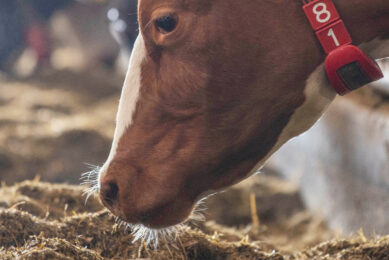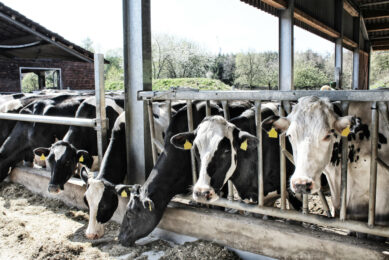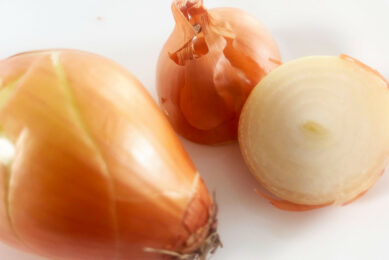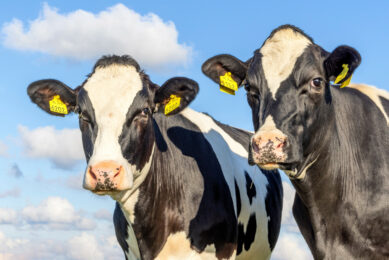Chitosan improves milk yield in Holstein cows
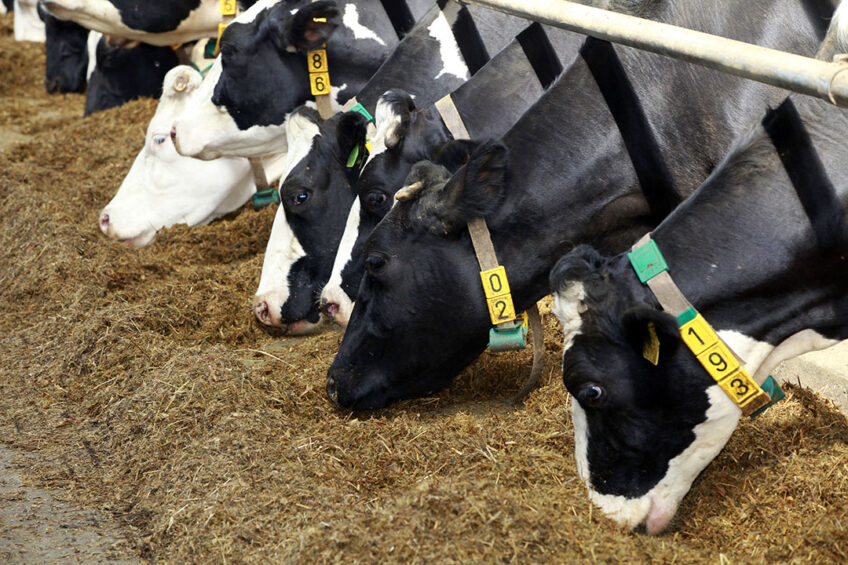
New research published in the journal Animal Feed Science and Technology (2021), concludes that supplementing chitosan in dairy cow diets improves milk performance and health status of cows.
Several studies show that increased levels of oxidative stress in high-producing dairy cows are the main cause of immune dysfunction. The increasing oxidative damage and inflammatory response in dairy cows predispose them to diseases, leading to a decline in milk production and milk composition. Chitosan is a biochitin polymer that is natural, non-toxic, biocompatible, and biodegradable, that is mainly produced from marine crustaceans, such as shrimp shells. Insects have also emerged as an alternative source of chitosan and chitin. Chitosan has been reported to have antibacterial properties, anti-inflammatory, antioxidant, and anti-tumour activities. The antioxidant capacity of chitosan is related to its suppressing effects on nuclear factor-κB (NF-κB) signalling pathway and inhibition of the production of nitric oxide.

Chitosan supplementation
This study investigated the effects of dietary supplementation of chitosan on milk production, antioxidant status, and on markers of inflammatory response in dairy cows. A total of 40 Holstein dairy cows in second and third parity were randomly assigned to five treatments: (diet 1) control (without chitosan supplementation), and (diets 2-5) with chitosan supplementation of 500, 1000, 1500, 2000 mg/kg DM intake, respectively. Cows were milked 3 times daily (4:00, 11:00 and 21:00h), with milk yields electronically recorded.
Improved milk production
The results of the study showed that supplementation with chitosan increases the yields of milk, energy-corrected milk, protein, and lactose. But total milk solids are not affected by chitosan. This increase in milk production was attributed to the linear increase in DMI that was observed with chitosan supplementation. “Due to the high energy and nitrogen content required for milk synthesis, dietary chitosan supplementation promotes rumen fermentation function through increased rumen propionic acid content and crude protein digestibility. The supplementation of chitosan appears to improve nutrient digestion and metabolism, resulting in increased milk production and increased protein and lactose production,” said the scientists. Looking into other animal species the researched stated that similar results are observed in beef steers and dairy ewes. For steers, increase of DMI and digestibility of CP and NDF were observed when beef steers were supplemented with chitosan. The steers had increased ruminal propionate concentration and microbial protein synthesis. In ewes, supplementation with chitosan increased the milk yield-to-DMI and (Fat-corrected milk) FCM-to-DMI ratios.
Effect on antioxidant status
The supplementation of chitosan increased the antioxidant enzyme activities of superoxide dismutase, catalase, and glutathione peroxidase, and reduced the contents of oxidative stress markers (malondialdehyde (MDA) and reactive oxygen species (ROS)), exhibiting a better antioxidant status of the cows. The concentration of MDA was decreased by 52%, whereas for ROS by 41%. In the present experiment, chitosan had a dose-dependent promotive effect on antioxidant status of dairy cows, with better effect in 1500 and 2000 mg/kg chitosan, indicating that high dose supplementation is more effective than a low dosage.
Immune status of cows
Cytokines such as interleukin 1 (IL-1) and tumour necrosis factor (TNF-α) are known markers of inflammatory response of cells; the increase of these cytokines can activate the production of nitric oxide during the inflammatory process, which regulates inflammatory responses. Increase in nitric oxide in the blood leads to changes in antioxidant balance. A decrease in IL-1 concentration can reduce nitric oxide production and expression of the enzyme ‘inducible nitric oxide synthase (iNOS)’. The production of nitric oxide is partially mediated by iNOS, which is regulated by NF-κB transcription factors. The NF-κB pathway is, thus, involved in inflammation, immune response, and cell survival.
In the current research, the supplementation of chitosan reduced the production of nitric oxide (45% reduction) and pro-inflammatory mediator (IL-1) by 28%, in a dose dependent manner, thereby alleviating inflammation. The iNOS enzyme concentration was also reduced by 49% with chitosan supplementation. The gene expressions of NF-κB, iNOS, and IL-1 were down regulated in a dose-dependent manner.
“The mechanism of chitosan improving antioxidant capacity and relieving inflammatory response involves the inhibition of NF-κB signalling pathway, cytokines (such as interleukin 1), and the iNOS activity, thereby reducing excess nitric oxide production. This effect of chitosan on improving antioxidant status and depressing the pro-inflammatory mediators also partially explains why the additive can promote milk performance of dairy cows,” it was concluded.
On the other hand, higher SCC in milk is often considered a good indicator of immune dysfunction and increased risk of infections. In the same line, a decrease of CD4+/CD8+ lymphocyte ratio is associated with immune dysfunction and an increased risk of infections. The ratio of CD4+/CD8+ in milk is negatively correlated with milk SCC, which indicates the capability of the immune system. In the present research, the increased proportion of CD3+ and CD4+, and the decreased CD8+ lymphocyte subpopulations showed that adding chitosan to the diet could change the composition of lymphocytes in the blood, affecting the immune response of dairy cows. Chitosan supplementation linearly reduced the SCC of milk, confirming the additive’s capacity to alleviate inflammation in dairy cows. “It can be inferred that the reduction of nitric oxide and pro-inflammatory mediators by chitosan may be related to the activation of T cells,” they said. In addition, in this study, the three tested immunoglobulins (IgM, IgA, and IgG) increased with increasing levels of chitosan in the diet.
The optimal inclusion level
The researchers concluded that supplementing chitosan in dairy cow diets can improve the DMI, milk performance, antioxidant capacity, and inhibit the production of pro-inflammatory mediators in a dose-dependent manner. Since chitosan was supplemented at different inclusion levels, they recommended an optimal dosage of 1500–2000 mg/kg feed in DM basis. They found the additive a valuable dairy feed ingredient worth exploring.
Publication: Animal Feed Science and Technology (2021).
Join 13,000+ subscribers
Subscribe to our newsletter to stay updated about all the need-to-know content in the dairy sector, two times a week.



